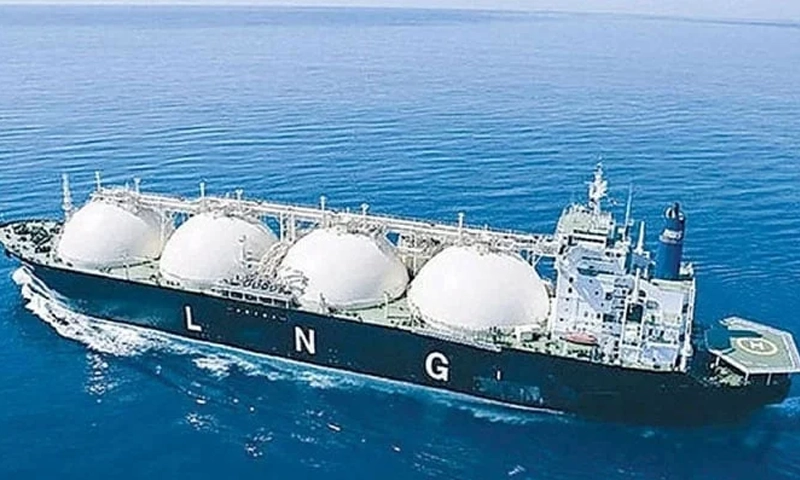- Web
- Feb 05, 2026
Pakistan looks to delay LNG import from Qatar amid falling demand
-

- Syed Raza Hassan Web Desk
- Aug 26, 2025

KARACHI: Pakistan is seeking to delay dozens of liquefied natural gas (LNG) cargoes from Qatar starting in 2026, as the country grapples with weak demand, mounting losses on gas sales, and growing reliance on cheaper solar power.
Officials said that Pakistan wants to defer at least 24 LNG cargoes in 2026 under its long-term contracts with Qatar.
That is far higher than the five cargoes already pushed from 2025 into the following year. Pakistan currently imports around nine LNG shipments a month under two deals with Qatar, totaling 108 cargoes annually.
Pakistan to renegotiate LNG deal with Qatar amid rising energy costs
According to a report Bloomberg, Islamabad is considering deferring as many as 177 Qatari LNG cargoes over the next five years — an average of more than 35 cargoes annually — until after 2031. If confirmed, the plan would mark a major retreat from LNG, a fuel Pakistan began importing in 2015.
Pakistan has also managed to defer nine shipments this year from Italy’s ENI under a 12-cargo annual contract, though it remains unclear whether further deferrals will be agreed in 2026.
Sources said that a government delegation is expected to visit Doha to discuss the proposal, with one of the country’s contracts also coming up for price review in March 2026.
One deal is currently linked to an oil price slope of 13.37 per cent—considered relatively expensive compared with the second contract, pegged at 10 per cent.
Government to reduce LNG imports from Qatar
According to Bloomberg, the move was a stark turnaround for Pakistan, which just a few years ago was suffering from a gas shortage. Power demand has dropped since the government was forced to increase power rates in order to secure loans from the International Monetary Fund, a move aimed at reducing utility debts. A boom in solar generation has also cut consumption.
Utilities have also shied away from using imported LNG, as it is costlier than other fuels, further exacerbating Pakistan’s oversupply. Pakistan has also slowed cheap domestic gas output to accommodate excess LNG supply.
Analysts said that Pakistan’s shrinking appetite for LNG could weigh on global spot prices, with QatarEnergy potentially forced to seek alternative buyers. But they warned that Pakistan’s LNG demand will only recover if economic growth picks up and the government can better manage its energy sector finances.
On August 25, the Platts October JKM benchmark for Asian LNG was assessed at $11.71 per MMBtu.




